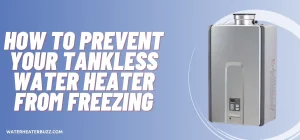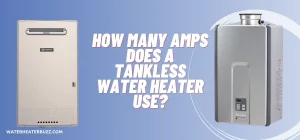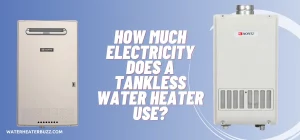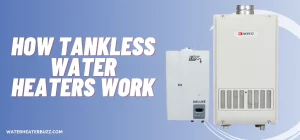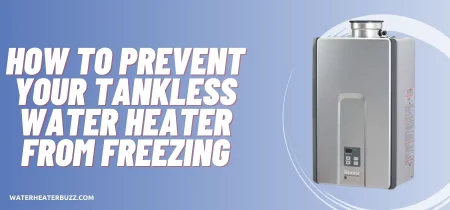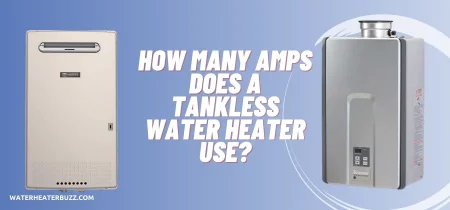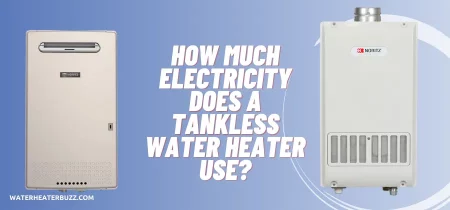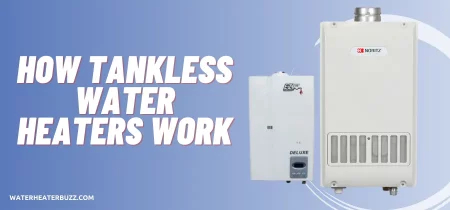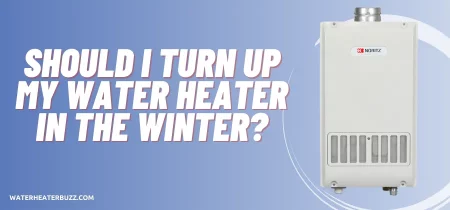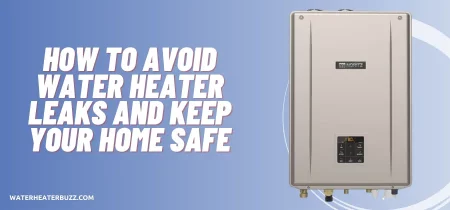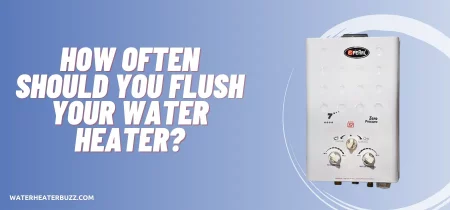All the preparation and equipping an area with basic facilities seems tiring and challenging: furniture, gas connections, appliances, and what not! You will agree that one of the crucial installments includes fitting an appropriate water heater that will provide hot water in time to the consumers. If you have started looking for an ideal water heater, you must have noticed that they are different types.
Among these appliances, propane and electric water heaters are widely purchased and used. Both are less bulkier and more durable than traditional heaters. Though they have the same purpose, they have various distinguishing factors which make them preferable for specific situations. I have listed these significant aspects that will facilitate you in getting a main idea and clue, thus increasing the potential of getting the most suitable and perfect water heater.
Propane Vs. Electric Water Heater
Design and Source
The electric water heaters require an appropriate electricity source for functioning, while the propane heaters need propane gas to provide the hot water. In electric heaters, the tank for water storage has an outer of stainless steel. Cold water enters the heater through an inlet and begins heating up. High voltage rods that are long vertical tubes perform this primary function.
As the temperature increases to the set conditions in the central portion of the tank, it moves outward through an outlet. Thermostats in these products allow easy adjustment monitoring of temperature. When it comes to size, these tanks are available in multiple sizes, the smaller ones being usually less powerful than, the larger ones. In terms of design, they come in two construction styles: tank and tankless heating devices. Tankless ones are more lightweight and smaller, and easier to install than tank-type heaters.
In the case of propane heaters, a burner present at the bottom area of the tank raises the water temperature through the propane supply. Water rises to above in the tank as it is heated through a process called convection. The process continues until a specific amount of water is heated up, which is available to the people via a discharge tube.
Tank propane heaters have high insulation to keep the water hot. Moreover, they include a highly efficient ventilation system. For instance, direct-vent water heaters remove the exhaust gases via fans, which are then transported outdoors through a plastic tube. Like electric heaters, these products come in two main designs: tank and tankless. Tank-type heaters are generally larger in size and less compact than the other versions.
Installation Process
Whether installing a propane water heater or electric heater, the first step involves the inspection and permission from the concerned authority. Electric water heaters involve easy setup and installation since they do not have complex parts and every household has an electric connection. The point-of-use heaters do not require high voltage, while those for heavy water utilization and several applications need more powerful connections.
When it comes to adjusting a propane heater, certain features make this task extremely convenient for a plumber or service provider. The corrugated stainless steel gas ducts are foldable and easy to carry to the location. Furthermore, the vent tubes are routed outwards through a side area in the wall, and outer air for combustion is directed inwards through a separate tube. This construction makes the entire process convenient, especially when replacing an electric heater with a propane one. Generally, the installation cost for these heaters is greater than that of electric heaters.
Price
The price of tank-type electric heaters is lesser than tank propane heaters. For a standard electric heater, you will have to pay around 500 dollars. A regular propane heater will be available to you for approximately 700 dollars. As the efficiency and quality of both the heaters increase, their costs will be higher. The heaters with more advanced technology can be upto 1000 dollars.
Performance and Efficiency
The effectiveness and efficiency of any product or device are among the most crucial factors that one should be aware of before bringing it to a locality. The propane heaters consume energy more efficiently as compared to electric devices. It leads to more annual savings since there is a significant reduction in energy costs. For example, tankless propane heaters offer yearly savings in the range of 13 to 20 percent, which is more than a standard electric heater.
In terms of performance, both types can provide gallons of water in time. However, the first-hour rating (refers to the gallons a water heater can provide in one hour) for a propane water heater is higher than that of an electric heater. Also, for delivering a specific amount of water, you will need a larger electric tank heater. A smaller propane heater supplies the same amount. Thus, you will have to prepare for a larger area when installing an electric heater.
Running Cost
The operational costs associated with a propane-type water heater are lower than that with an electric heater. Also, propane is less expensive than electricity in most regions. A family living in an approximately 2000-square-foot area will need to hand over around 600 dollars annually if they have an electric heater installed in the central system. With a propane heater, a homeowner will have to pay almost half the energy prices. Though a propane heater is more pricey, the decision of purchasing is worth it, and you will notice the benefits in the long run.
Environmental Factor
Fortunately, both kinds do not emit a significant percentage of greenhouse gases into the environment. When we compare these heaters, propane heaters release a lesser amount than electric water heating devices. A tank-type propane heater produces 46% lesser emissions of carbon dioxide, while a tankless heater involves a 70% reduction. Sounds impressive, right? It results in an overall annual reduction of thousands of pounds.
Frequently Asked Questions
Should you hear an electric water heater?
If an electric heater produces an unusual noise, you should pay attention to it and investigate a potential problem. Generally, the situation does not mean that there is some emergency. In most cases, these sounds are because the heating source ( a burner or elements) needs more supply and energy. Ignorance might lead to gradual damage to the tank material since it gets overheated.
Why are propane heaters so popular?
A majority of people use propane water heaters and appreciate them since theory offers a range of benefits. They are convenient to install, economical, efficient, and cover less area.
Can a propane water heater be used with natural gas?
No, one cannot connect a water heater to a natural gas supply. Manufacturers design products such as furnaces and dryers so that they can work with both fuels. However, the manufacturers specifically design the components of a propane heater (e.g., thermostat) that cannot function with natural gas.
Conclusion
After going through this article, I hope that you have gained sufficient knowledge about both types of water heaters. When it comes to efficiency, performance, environmental aspect, and convenience of installation and replacement, propane heaters take the lead. However, if you want to enjoy working with hot water on a set budget, you should consider buying an electric water heater. Though these are less efficient, they are still fantastic in performance and equipped with quality parts and modern technology.

